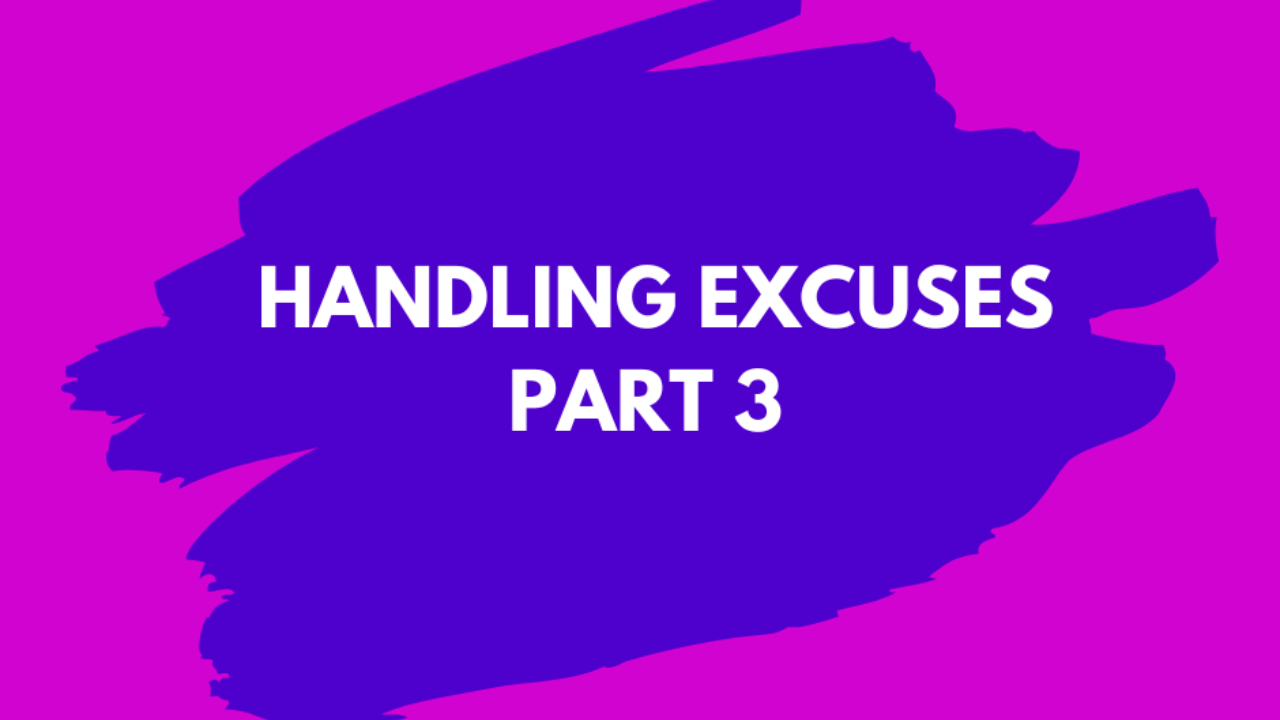Handling Excuses Part 3
Aug 10, 2023
-
“A little more won’t hurt. It’s a healthy, low-calorie food or a salad.” You want to be aware of your hunger and satiety signals so you do not overeat - no matter the food. Even overeating lettuce is still overeating. The more you practice stopping before you’ve overeaten, the easier it becomes. If there is a food that you often overeat, practice leaving a small amount of that food on your plate or in your bowl and eating that food only until your body is satisfied. Try to get used to feeling light and energetic after you eat rather than heavy or uncomfortable.
-
“I just did a strenuous workout so I can eat this ____ (usually something unhealthy) or eat more than usual.” If you want to lose or maintain weight, eat according to your hunger and satiety signals. When I walk a mile, I only burn about 100 calories. You don't need to eat more if you haven’t exercised enough to be hungrier than usual. If you are hungrier than usual, eat slowly and pay attention so that you notice when you've eaten enough to be satisfied - but not stuffed. And make choices that will fuel your body whenever possible.
-
“It’s the weekend, I’m on vacation, It’s a holiday," or “It’s a party. I'll restart my diet on Monday.” If you want to lose and maintain weight, you need to plan for weekends, parties, holidays, and vacations. You can have a different plan for these times, but it’s important to plan to be successful.
Examples are: You can make a simple restaurant plan, deciding to eat some protein, vegetables, rice or potatoes, and bread or dessert or an appetizer (if you're still hungry). At a party, you can plan to taste 5 different foods or desserts if you're hungry and not overeat. And remember to make a plan for how much alcohol you'll drink also. You can make a plan ahead of time to fit your lifestyle - no matter the occasion. Your plan should fit your lifestyle and be something that you can follow no matter what your weight.
-
“I’m not feeling well," or “It’s my hormones.” If these are frequent excuses, have a “sick day” or "hormone" plan. You may want to plan to eat certain foods during these times. Planning is the key to success.
-
“I’m too busy to make a plan." It takes less than 5 minutes to make a plan. If certain situations commonly occur (such as wanting to pick up a quick dinner on the way home), have a plan for those times and keep it on your phone or somewhere easily accessible. “Failure to plan is planning to fail." Not only is it important to make a plan, but it is also important to follow your plan. At the end of the day or the next morning, take 5 minutes to evaluate what worked and what didn’t. What do you need to change to make a plan you can follow and that you love?
There are times when you may choose to avoid following your plan. It is fine if you love your reasons and the occasions are infrequent. If you frequently ignore your plan, you haven't made a plan that works for your lifestyle.
If you cannot manage your excuses, I can help. Schedule a free, no-obligation, no-pressure call with me at:
https://calendly.com/coachbarbarakatz/60min
Stay connected with the latest blogs, newsletters, and updates!
Don't worry, your information will not be shared.
We hate SPAM. We will never sell your information, for any reason.

